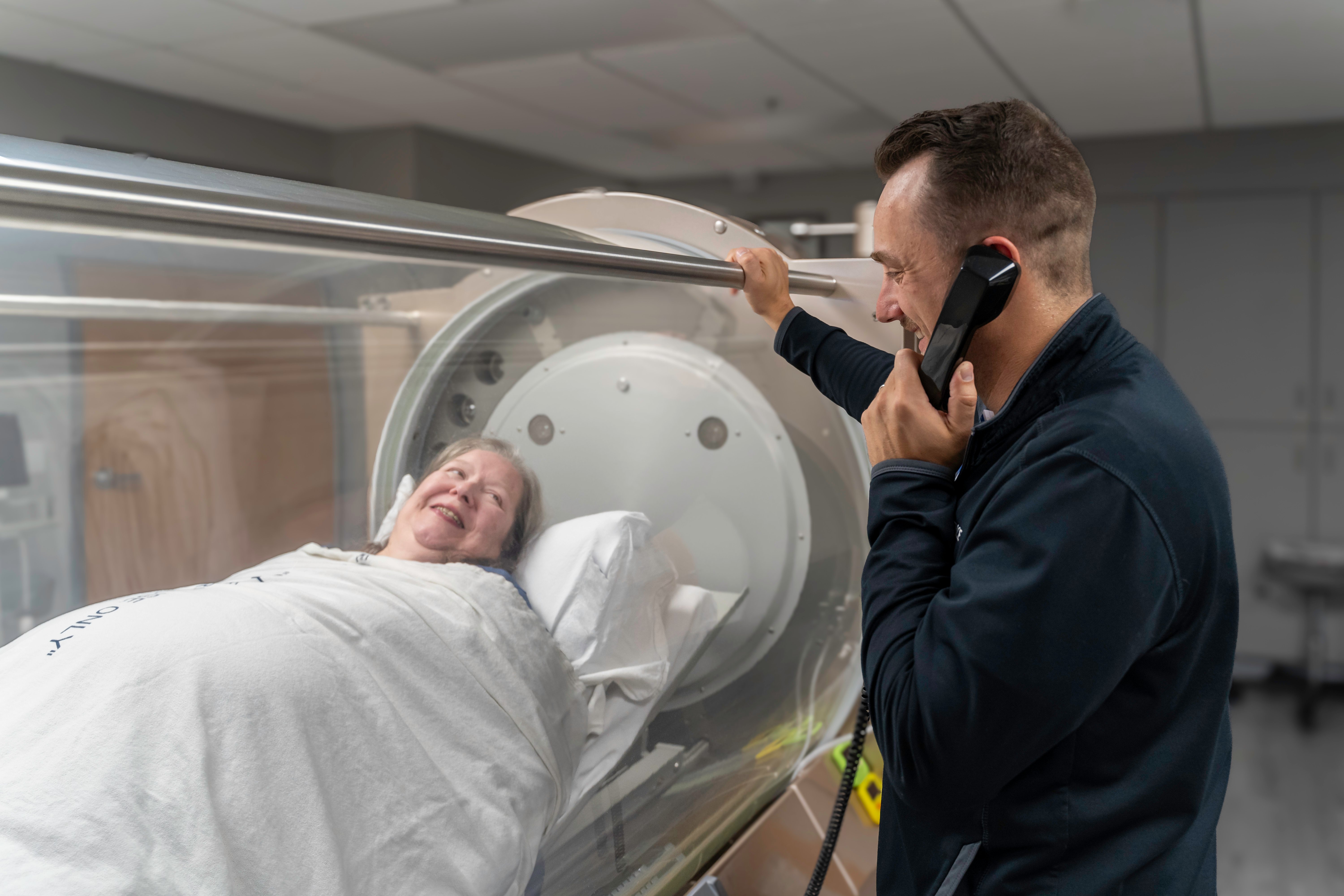Providing advanced care for complex wounds
A non-healing or hard-to-heal wound can be difficult to live with and manage. At Rochester Regional Health, our wound care centers provide advanced care for complex wounds so that you can regain your health and get back to doing the things you love. Our hyperbaric oxygen therapy chambers are some of the largest and most comfortable in the region.
Wounds that take longer than a month to heal may require specialized care. These wounds are considered chronic, and can be caused by:
- Burn injuries
- Diabetes
- Lack of mobility
- Poor circulation
- Physical trauma
- Underlying illnesses
Non-healing wounds affect more than 6.5 million Americans a year. If you are dealing with a chronic wound, you are not alone. Rochester Regional Health can help. Learn about wound types that we treat.
A Leader in Specialized Wound Care
Our Wound Care Centers and its patients continually rank the Center above the 98th percentile for satisfaction. Our multidisciplinary team addresses the needs of patients with wounds that have not responded to conventional treatment.
Our team develops a personalized plan that matches each patient with techniques including:
- Compression Therapy – Uses special bandages to hasten wound healing.
- Total Contact Casting – A localized cast helps evenly distribute weight on the foot's surface, speeding up healing by reducing pressure on the wound.
- Negative-Pressure Wound Therapy – A vacuum pump applies gentle, concentrated pressure on acute and chronic wounds.
- Cellular Tissue Products – Ideal for non-healing wounds that are non-responsive to standard techniques.
Ostomy Program
Living life with an ostomy doesn’t need to keep you or a loved one from living a full and healthy life. That’s why the staff at the Ostomy Program at Rochester Regional Wound Care Center is here to support you.
Your doctor or surgeon may recommend an ostomy to treat a digestive or urinary system disease. The surgery involves creating an opening (stoma) from inside the body to the outside to help eliminate waste.
Ostomy surgery is a common procedure. Every year, an estimated 113,000 people need a temporary or permanent ostomy. Hundreds of thousands of individuals live, work and maintain relationships with an ostomy.
Inpatient Wound Care: Wound Care Inside Our Hospitals
Our specialized wound care team cares for patients at Canton-Potsdam Hospital, Gouverneur Hospital, and Massena Hospital, and works with hospital personnel to assure patients receiving wound treatments are getting the very best care possible.
What does Inpatient Wound Care include?
Inpatient Wound Care at our hospitals includes:
- Skin assessments
- Routine dressing changes
- Specialized recommendations of treatment to the attending care team
- Wound vacuum placement
- Pressure injury prevention interventions and monitoring
- Collaboration with hospitalists and providers to address real-time care needs
- Pressure injury/wound reassessment
- Ostomy education to ensure a smooth transition to outpatient care
- Discharge planning and transitioning to outpatient wound care
Our Wound Care Locations
Assuring our patients do not develop pressure ulcers, or bed sores, is extremely important to us. To learn more about how we assist our patients in preventing pressure ulcers, or what can be done at home for prevention, you are invited to review our "You and Your Family Can Help Prevent Pressure Ulcers" brochure.





